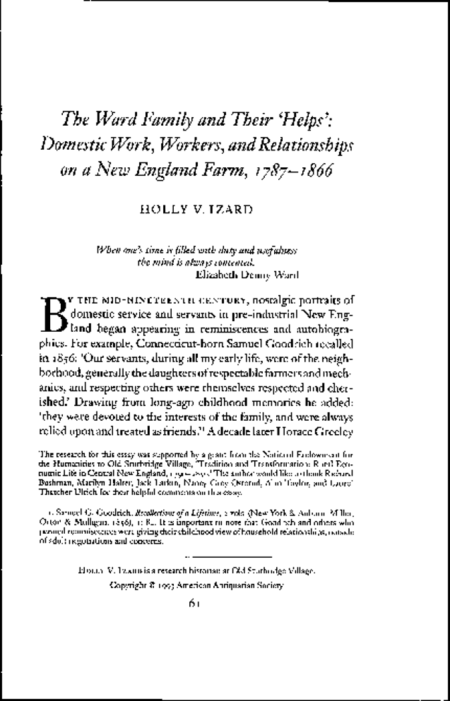Rural domestic labor in early-19th-century New England did not undergo drastic changes as a result of industrialization and urbanization. Daily life and work changed little from that of previous generations. Male and female social ties overlapped and work spaces remained integrated. Farm and household production did shift, however, to meet broader changes and in response to a growing middle-class ideology. The author uses the experience of the Ward family of Shrewsbury, Massachusetts, as recorded in the family's journals, diaries, and accounting ledgers from 1787 to 1866, to explore these issues.
Publication Date
Volume
103
Part
1
Page Range
61-90
Proceedings Genre
